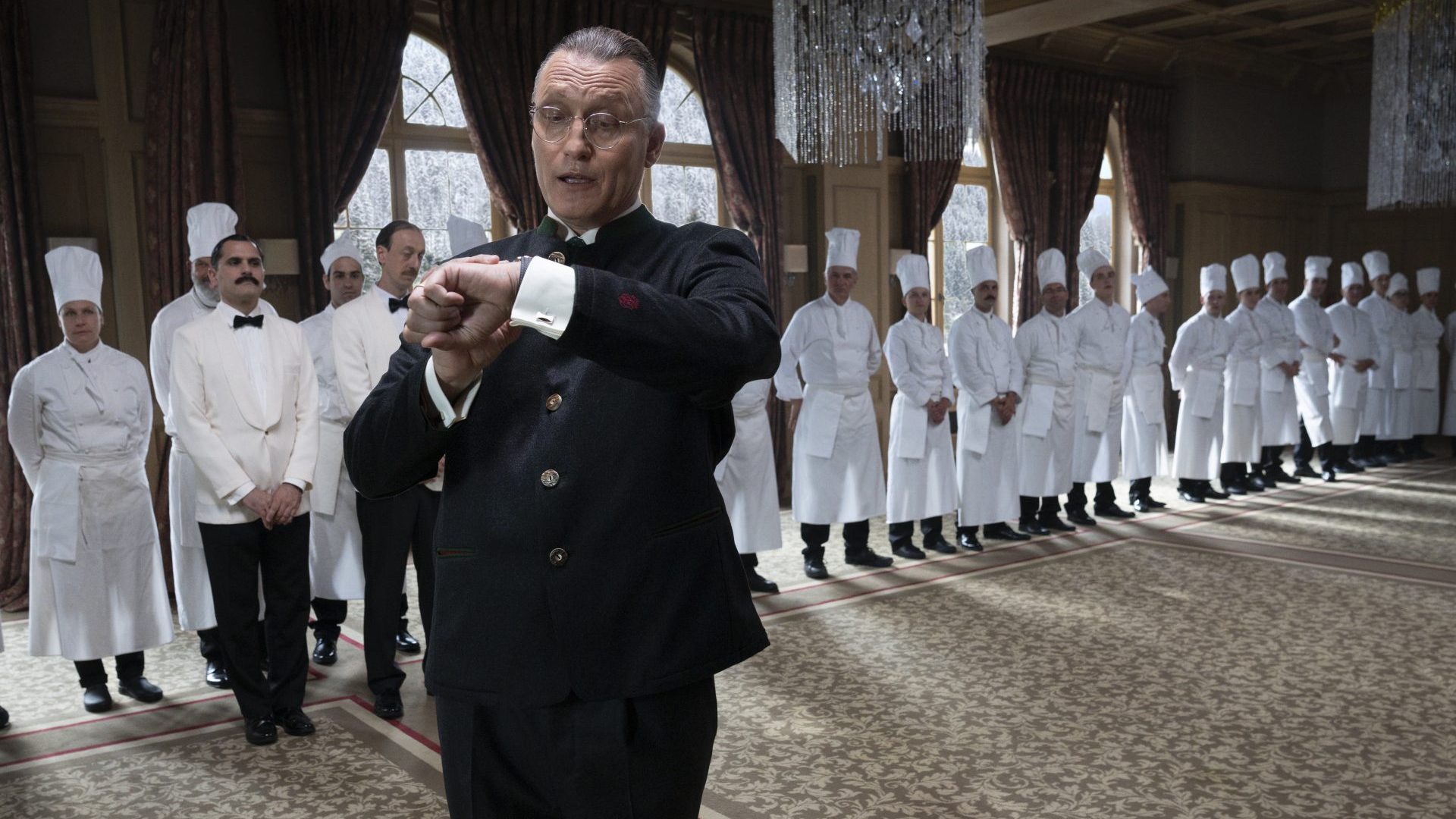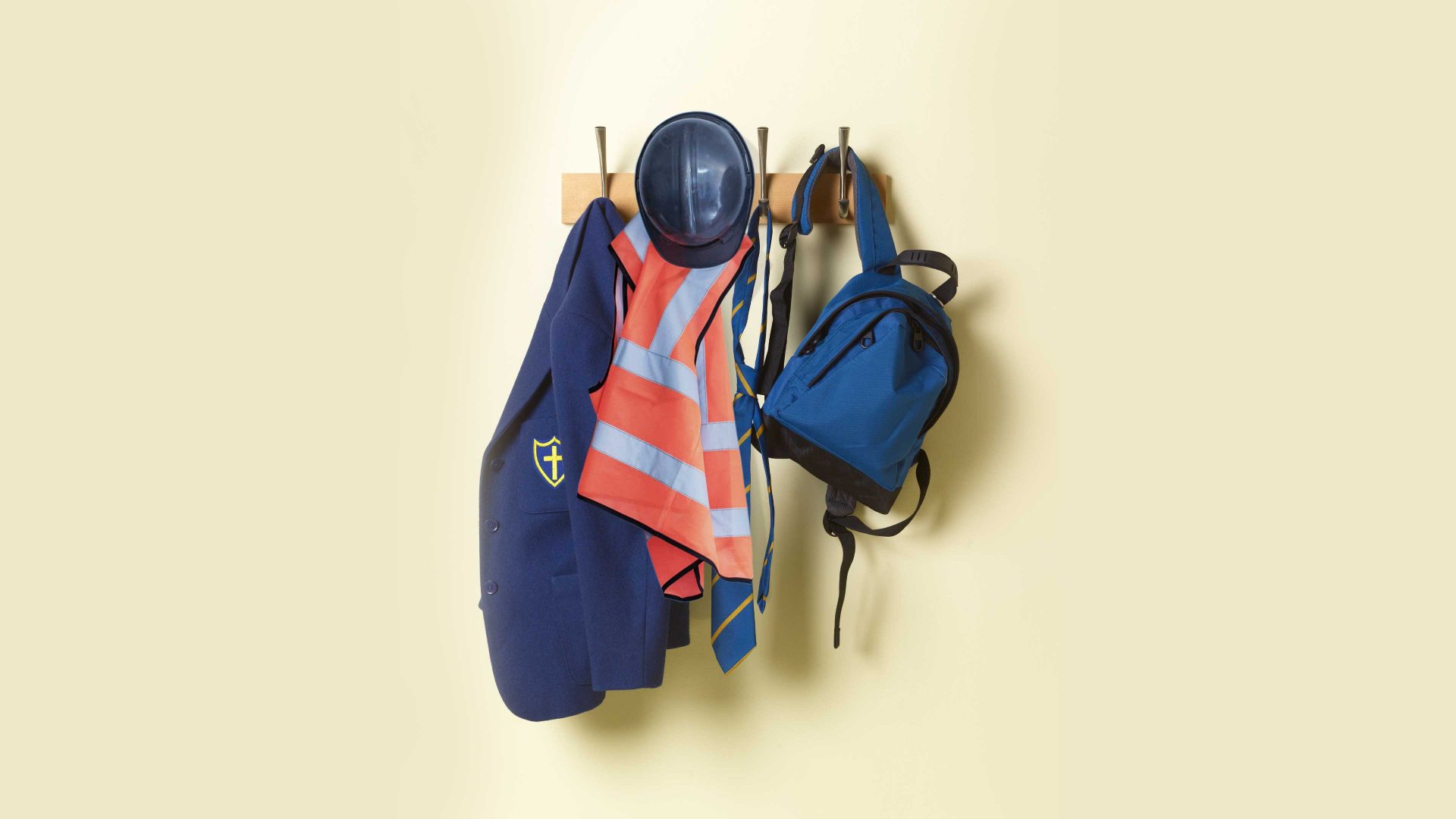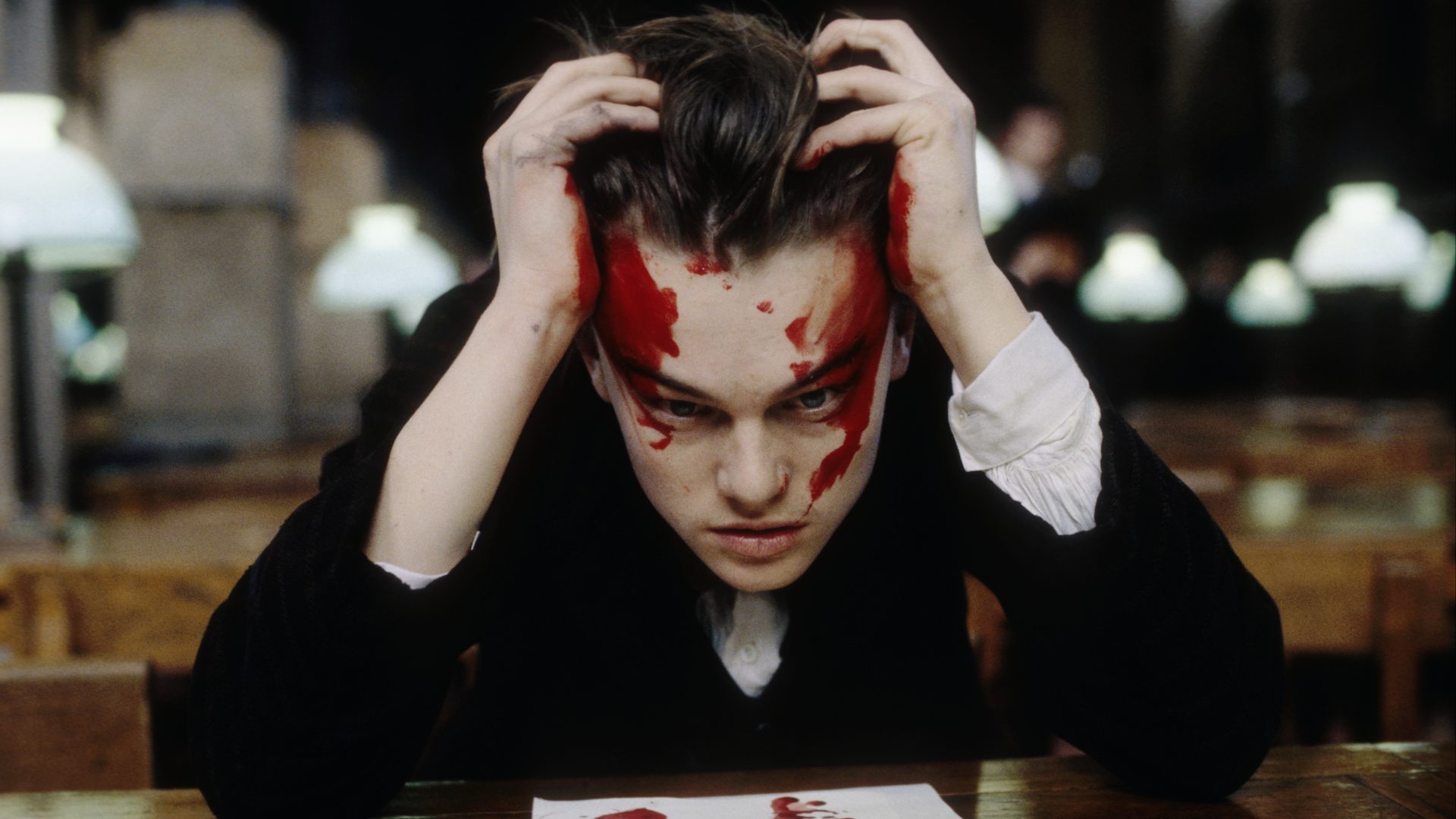Despite the backdrop of Hollywood’s strikingly absent actors and writers, cinema’s most radical days felt more distant than ever at the 80th Venice Film Festival.
As this summer of discontent about content boiled up into humid storm clouds that scudded over the Lido, I thought of May 1968, at Cannes; a bunch of filmmakers brought the festival to a halt when Jean-Luc Godard uttered the famous words: “We’re talking solidarity with workers and you’re talking about dolly shots and close-ups. Vous êtes des cons.”
Where is such fervour and protest from our filmmakers these days? The fact that Venice went ahead without stars at all felt like meek acquiescence. The fact that Netflix was welcomed in to flash its wares in five films all over the big screens of the Sala Grande even worse – nobody cheered the appearance of that N logo, that’s for sure, but the timidity of any boos spoke volumes. On top of all that, several filmmakers with, shall we say, tarnished reputations were given the red carpet treatment – including Roman Polanski, who was part of that Cannes directors’ demo back in 1968.
At 80, Venice may be the grande dame of film festivals, but it’s still very much run by Old White Men – so tonally off were some of the selections and decisions, I wouldn’t be surprised if the Spanish FA turned up for the prize-giving ceremony.
Pressing ahead without big stars on its nightly red carpets and daily press conferences, it felt that Venice kept finding myriad excuses not to support the strikes in Hollywood. Let the films speak for themselves, let the directors and auteurs speak for art, let the crafts (costume, camera etc) take the spotlight, let non-Hollywood movies find their space. But there was something ghostly and performative about the whole thing: if not death in Venice, then certainly a dearth.
It wasn’t just the first few days of rain that resulted in the damp squib. Pierfrancesco Favino is a terrific actor and probably Italy’s best-known international star at the moment, but he is no replacement for Zendaya. Her presence would have seen a new generation of fans flooding on to Venice’s thin strip of an island, but the withdrawal of her sexy tennis film, Challengers, from the prestigious and often portentous opening-night slot, meant the home nation plugged the gap with Comandante, in which Favino stars as a maverick submarine commander sinking ships and saving lives in the Straits of Gibraltar in 1940. Water, water everywhere indeed.
There was a super blue moon, though, which eventually shone through to bathe us in some silver linings, the brightest of which was Yorgos Lanthimos’s Poor Things, a movie that reunites the London-based Greek director with his star of The Favourite, Emma Stone. Adapted from the Alasdair Gray novel of 1992 by screenwriter Tony McNamara, it is really quite something.
Stone plays Bella, a fully grown woman found drowned and then re-animated by a mad Victorian professor (Willem Dafoe) and implanted with a baby’s brain, so she learns about the world anew, particularly with regard to sex, which she takes up with candour and vigour – “furious jumping” Bella calls it – in picaresque adventures from Lisbon to Paris and beyond.
Stone is, without doubt, extraordinary in this feminist Frankenstein-ish fable, naked for much of the time, in a way that’s challenging and comedic rather than erotic, although, well, it’s still Emma Stone, naked. It is a remarkable, physical performance in a film about being in charge of your own destiny.
The film also looks amazing, on surreal sets and under Turner and Van Gogh skies fabulously designed by artist Shona Heath and complimented by Holly Waddington’s brilliant costumes. I doubt we’ll see anything more striking, daring, original and savagely funny for a while.
It feels odd when reporting from festivals to go into too much detail about films readers haven’t even heard of, but Ferrari is a recognisable title and one that will be on your starting grid soon enough. For a film from 80-year-old Michael Mann (Heat, Manhunter, Collateral), I expected much but found it a little disappointing, never quite getting into top gear even as it reconstructs the Mille Miglia road race of 1957 while Enzo Ferrari (flatly played by Adam Driver) negotiates the chicanes of his business and personal life.
For me, there was too much about his wife (Penélope Cruz) and mistress (Shailene Woodley) and not enough about the cars, the racers, the design, the red, the élan, the reckless danger and the spectre of death, which clearly haunted Ferrari.
Apart from the strikes and Stone’s performance, the other major issue swirling around Venice was the presence of three filmmakers who, in many eyes, should be “cancelled”. Luc Besson, Roman Polanski and Woody Allen were all welcomed into the fold in what a felt like a pointed gesture to gain some notoriety and ruffle some feminist feathers in a selection already badly lacking female filmmaker representation.
Would the work of any of these directors be enough to lift the clouds of suspicion over their personal lives? One feels it would take a new masterpiece to do that, and, che sorpresa, none of them delivered anything like their best work. So, the question marks inevitably remain hanging over them, the most immediate and answerable of which being: why were their films even here?
Besson can’t really claim maestro status, although his film career has been prolific and occasionally influential, such as in pioneering the cinéma du look in French film in the 1980s (Subway, Le Grand Bleu, La Femme Nikita), before his biggest international 90s hits such as Léon and The Fifth Element and, later, in 2008, the Taken franchise. His cartoonish latest, Dogman, probably owes something to Léon, being set in New Jersey and all in English, apart from the dog barks.
A showy performance from Caleb Landry Jones is the centre, playing a cross-dressing disabled person with a pack of hounds at his command, carrying out revenge missions and diamond robberies from his lair.
As for Polanski, I can only say I staggered from the screening of The Palace reeling from its awfulness. Set on New Year’s Eve 1999, at a party in the titular luxury Swiss hotel, with guests including John Cleese, Mickey Rourke, Russian gangsters and a penguin, it must be the worst film I’ve seen in 20 years on the Lido.
Woody Allen is a different proposition. As you know, I was a huge fan, but this has become an increasingly untenable position, not least because the quality of his film output is so visibly diminished from his heyday. Officially his 50th movie, Coup de Chance is, however, if not the oft-trumpeted “return to form”, certainly a form of departure, being filmed entirely in French.
It’s long been Allen’s dream to be a Parisian filmmaker and it’s fascinating that his nervy, upscale dialogue translates very well into French, perhaps better than it ever did into the English of his four London-set films. The wealthy, beautiful Parisians suit this light, murderous farce and it’s one of his best-looking films in years, gorgeously shot by Vittorio Storaro and sumptuously dressed by Sonia Grande.
Of the entirely French cast, Lou de Laâge enchants as a beautiful woman, Fanny, tempted into an extra-marital affair by a cord-jacket-wearing poet (Niels Schneider, slightly stammering in the ‘Woody’ role) while Melvil Poupaud excels as her evil, jealous husband, Jean, who has enough money to try and make life work out just the way he wants, including hiring some comically caricatured heavies.
I was surprised at Allen’s use of music here – for Midnight in Paris he really delved into the Sidney Bechet and Django Reinhardt Paris jazz anthology, but here he goes for a rather funky Nat Adderley selection to swing things along, including what I think must be his first ever use of jazz fusion. Woody goes electric?
Like Match Point but lighter in tone, this is an elegantly executed, haut-bourgeois meditation on luck, love and lust. There is one eerie element, though, for Woody experts: Poupaud’s sociopathic Jean is obsessed with a giant train set – and I couldn’t help but recall how his daughter’s allegedly false recollection of a train set in the attic has continually played a crucial role in Allen’s defence against the accusations of abuse. For a film about coincidence, that surely cannot be one.
Probably the next best “big” movie was Maestro, directed by Bradley Cooper, who also writes and stars in this biopic of composer and conductor Leonard Bernstein. It’s much better than his debut, A Star is Born, which also premiered at Venice, and features wonderful costumes and sound along with some fleet-footed story telling (not enough West Side Story though). It eventually settles into being one of those films about the difficulties of being – and living with – a total creative genius and all the crap they get away with.
Good and committed though he is as both actor and director, there’s still something indulgently self-regarding about Bradley’s preening performance, particularly as it quite often features adoring audiences applauding him wildly. Meanwhile, the “Jewface” prosthetic nose debate has certainly not been blown out of proportion even if, ultimately, you grow accustomed to his face – it’s still a bad choice and the wrong one. And anyway, it’s Carey Mulligan’s performance as Bernstein’s suffering wife, the actress Felicia Montealegre, that really anchors the emotional notes. (And again, however accurate and empathetic the portrayal, I heard some justifiable representational mutterings here, about the non-Latina Mulligan playing a famous Chilean).
Talking of which, Chile’s Pablo Larraín returned to Venice with his latest political metaphor, El Conde. As with previous Latin American auteurs (Alfonso Cuarón’s Roma and Alejandro González Iñáritu’s Bardo both launched here), Larraín is a fine filmmaker and his early films such as No, Tony Manero and The Club burned with anger over the corruption that, he feels, has sucked the life out of his home country and people since the dictatorship of General Pinochet.
Larraín’s English-language forays Jackie and Spencer (both of which premiered at Venice) also take on establishments, but El Conde is his first to tackle Pinochet’s legacy directly, even if it’s under the oblique guise of a black-and-white vampire movie, and rather oddly narrated by the voice of an English woman – reasons for this voiceover become horrifically clear late on, and I was kicking myself for not “getting it” earlier.
El Conde is brilliant in parts as, on the eve of his decision to finally die, Pinochet’s family gather to claim his millions stashed in overseas bank accounts. Meanwhile, the eternal shadow of his reign is prolonged by his diet of human hearts, victims he claims during cloaked midnight flights over an inky Santiago. I suppose one could call it a biting satire?
Death stalks Michael Fassbender, too, in The Killer, in which he plays an assassin whose tight routine and control unravel following a botched hit. He spends the rest of the film exacting revenge on those who would have him killed for his error. Directed by the cool, precise hand of David Fincher, the film had many fans here, for its icy humour and sleek look, even if I struggled to find any emotion in it. I did like how it de-glamourised the hit-man process though, making it look as if anyone with a mobile phone and an Amazon account could set up in the assassin business.
Sofia Coppola, a Venice winner with Somewhere in 2010, offered a portrait of an abused woman breaking out of her gilded cage in Priscilla, based on the autobiography of Priscilla Presley. It’s a curious, delicate and always-fascinating work as we watch her, winsomely played by Cailee Spaeny, being groomed as a 14-year-old schoolgirl in Germany by the charming southern boy in his army uniform, with Jacob Elordi ramping up the dangerous charisma as Elvis, always surrounded by guffawing good ol’ boys.
Remarkable in seeing Elvis from her point of view, this seductive, sad film traces their relationship all the way through her transportation to Graceland, Elvis’s absences for filming assignments (and infidelities), and into the Vegas comeback years. There is typical Coppola attention to soundtrack cues (the Ronettes, The Little Dippers, very little Elvis) and lavish costume changes, showing how these things can both define and suffocate a girl before she can fight to define herself.
The festival runs until September 9 when the Golden Lion will be awarded to the Best Film, along with other prestigious awards such as the Volpi Cups for Best Actor and Actress.
My predictions are: Poor Things, Mads Mikkelsen (for brutal Danish period drama Bastarden) and Emma Stone, who is surely destined for another Best Actress nomination six months from now.
Unless, of course, the kind of radicalism we missed in Venice means that the strikes go on and the Oscars ends up being cancelled.




